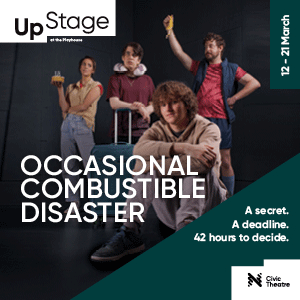Who Should Benefit from My Estate?
- Dec 5, 2018
- 3 min read

As Benjamin Franklin once said, “In this world, nothing can be said to be certain, except death and taxes.”
Death is an unpleasant topic, but we are lucky in Australia to have a well-developed set of laws that provide all with the opportunity to build wealth and provide a future for our families.
Part of the law that allows us to leave our assets to chosen beneficiaries in the event of our death is the doctrine of testamentary freedom. We have not always had the freedom to choose who benefits from our estate. From the earliest days of western civilisation until around the 19th century when things began to change, it was commonplace for the firstborn son to inherit the entire estate. In some countries, even today, people do not have the freedom to leave their estates as they wish.
A delicate balance exists between testamentary freedom and the moral argument that a testator should provide for their family upon their death. The expectation that a testator should provide for their family, and in particular their spouse and children, is one that is based on community standards and notions of fairness.
The Supreme Court of NSW applies the Succession Act (NSW) 2006, the Probate and Administration Act 1898 and other legislation to deceased estates. If a person dies without making a valid will, these laws govern who will benefit from the estate. Whether they know how it may work or not, every person already has a statutory will under the laws of intestacy. Often, the laws of intestacy fall short of what may have been desired by the deceased.
Many disputes also arise where people have been left out of an estate or where they feel like they have received inadequate provision under the terms of a will. These types of claims are often called 'family provision' claims. Eligible persons that could make a claim for 'adequate provision' from an estate includes a legally married spouse, a de facto spouse, a former spouse, a child (including adopted and potentially step-children), a dependent grandchild, a dependent member of the household, or a person living in a close personal relationship.
What might be considered to be 'adequate provision' will vary on a case by case basis and is determined by factors that are set out in legislation and legal precedent.
How someone owns assets can become a significant issue in determining how those assets are to be dealt with after death. There are many different ways assets can be owned, including as joint tenants, tenants in common and 'in trust'. These forms of ownership can have very consequences. Superannuation, for example, is an asset that is often owned 'in trust' and may not even become part of a person's 'actual estate'. There can also be significant tax consequences depending upon what assets are owned and who might ultimately receive them. Did you know, there are actually 2 different definitions of 'dependent' in relation to how superannuation may be treated after death?
Did you also know that 'binding death benefit nominations' sent to a superannuation trustee automatically lapse by law after three years?
There are many events and circumstances that can impact how assets are owned and what options exist for disposing of them after death. Knowing what will happen to your assets after your death is critical. Careful planning and management are required to avoid the risk of costly and protracted litigation, particularly as people's lives, relationships and financial affairs become more complex. This means that in addition to choosing who you intend to receive an interest in your estate, there must be a plan for how that can be achieved.
While it may seem like a daunting task, the process of deciding who you should leave your estate to is not that difficult; and it has to be done. Seeking the right advice from experienced legal advisors is a great first step. Get started by contacting Turner Freeman Lawyers.
Turner Freeman Lawyers has been recognised as a NSW Leading Law Firm in Wills
and Estates Law. Our recognition is based on our years of experience and expertise in
this highly specialised and complex area of law. If you require assistance, we encourage
you to call our Newcastle office on 4925 2996 or visit our website www.turnerfreeman.com.au









































